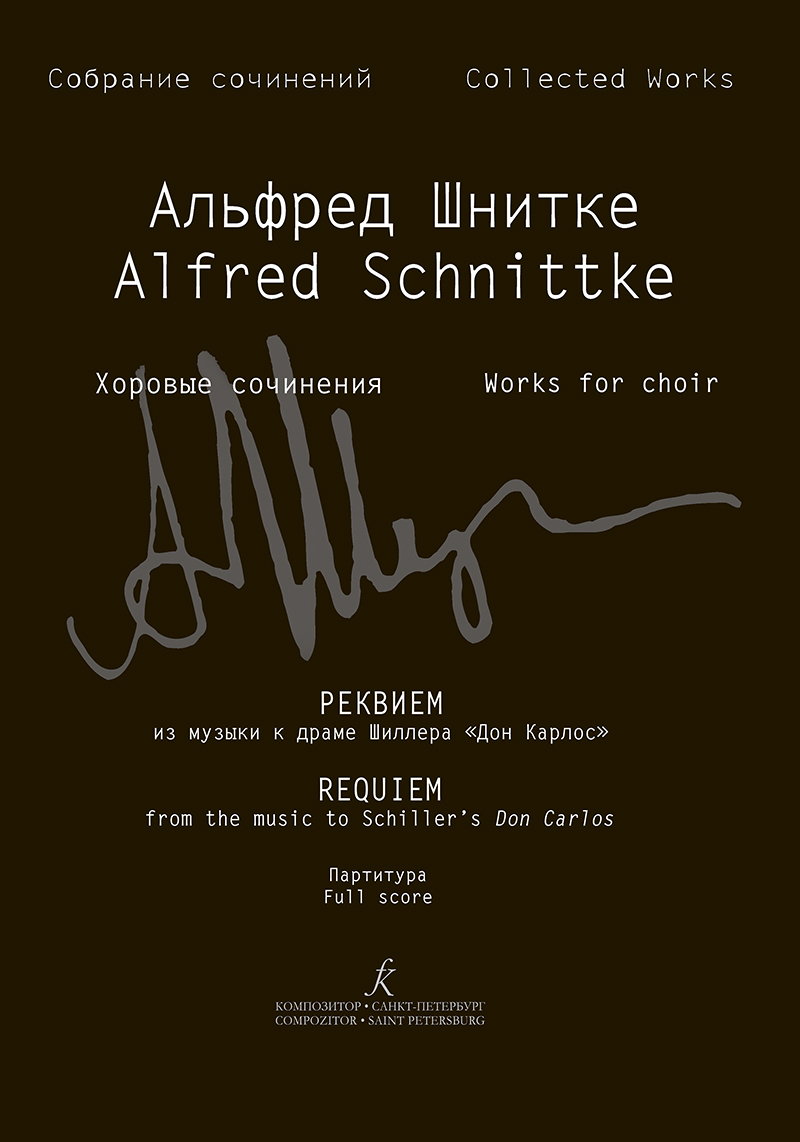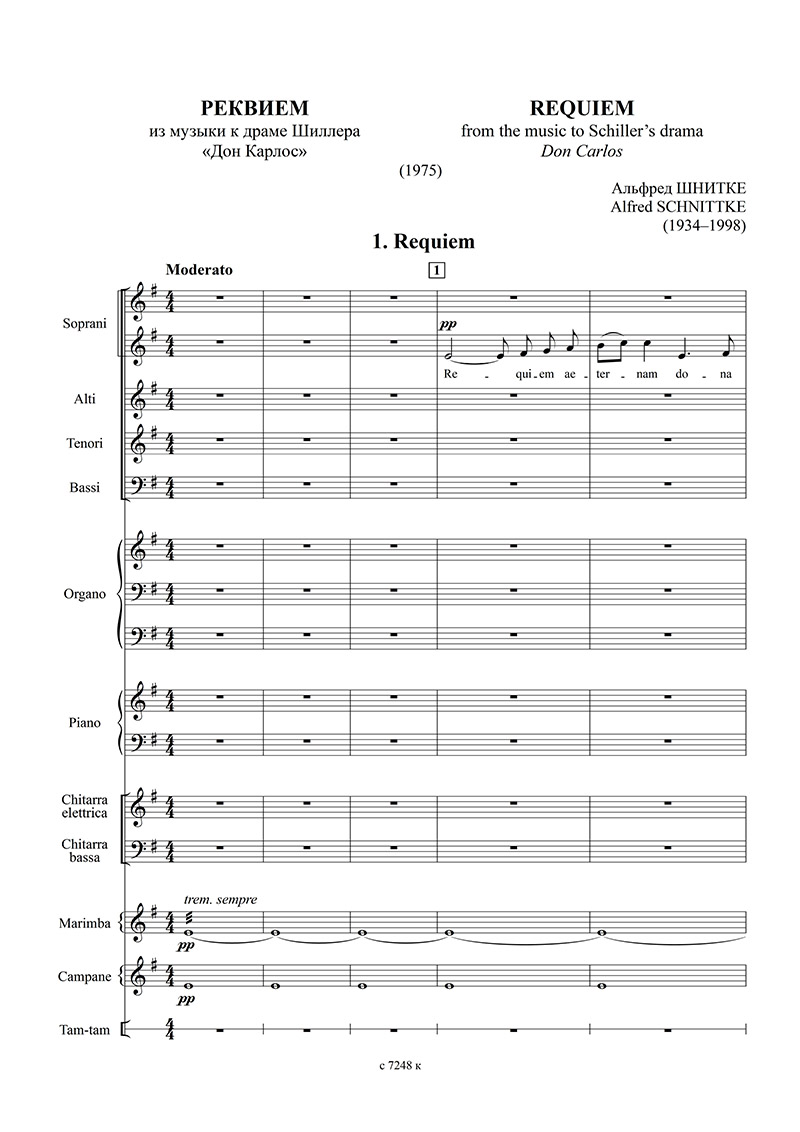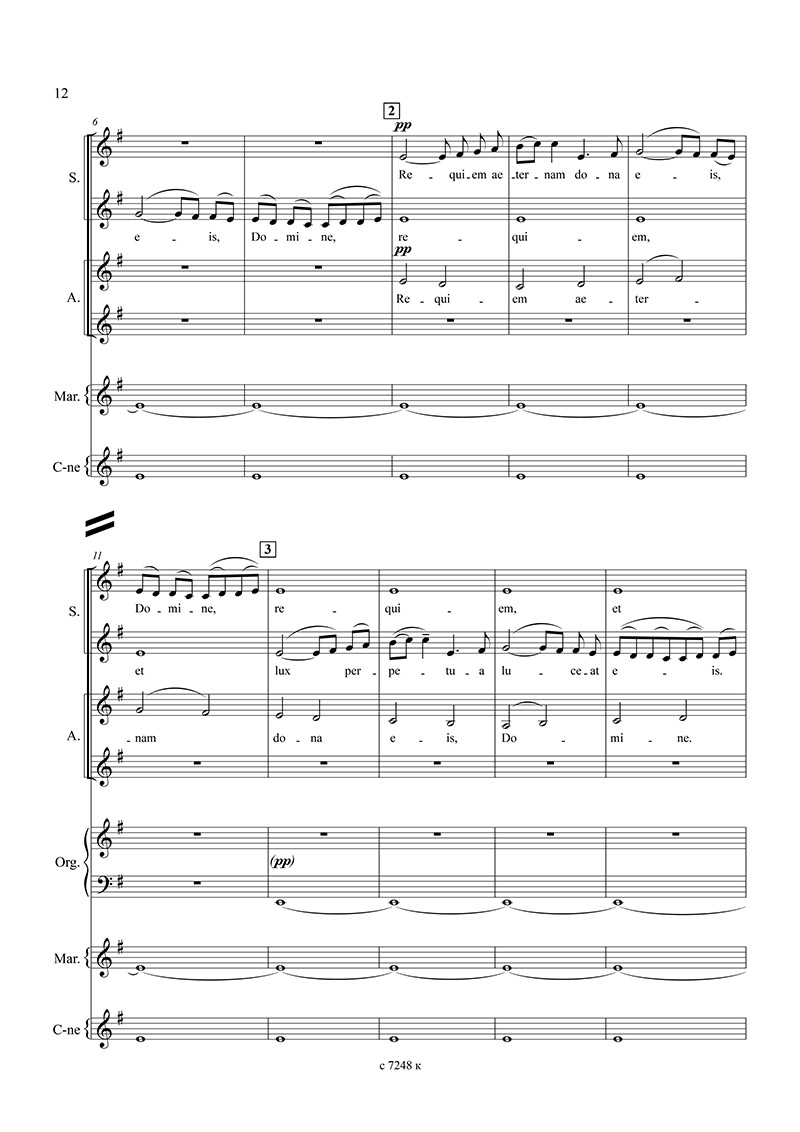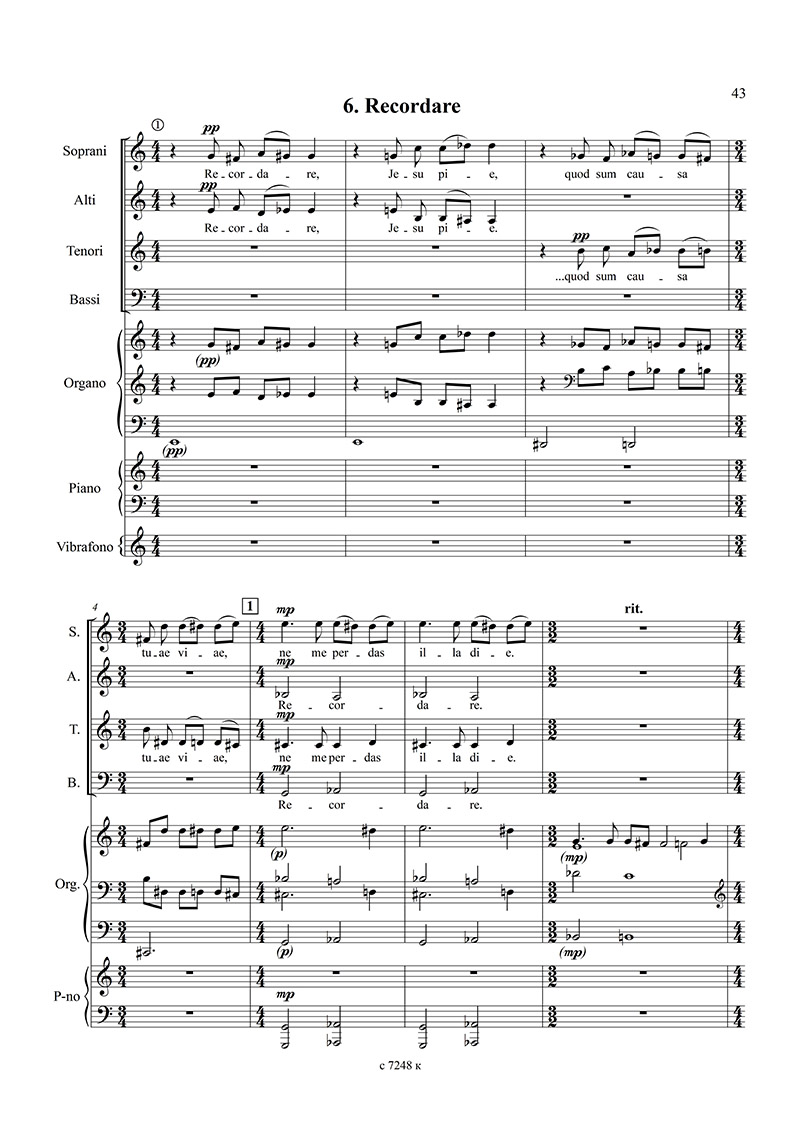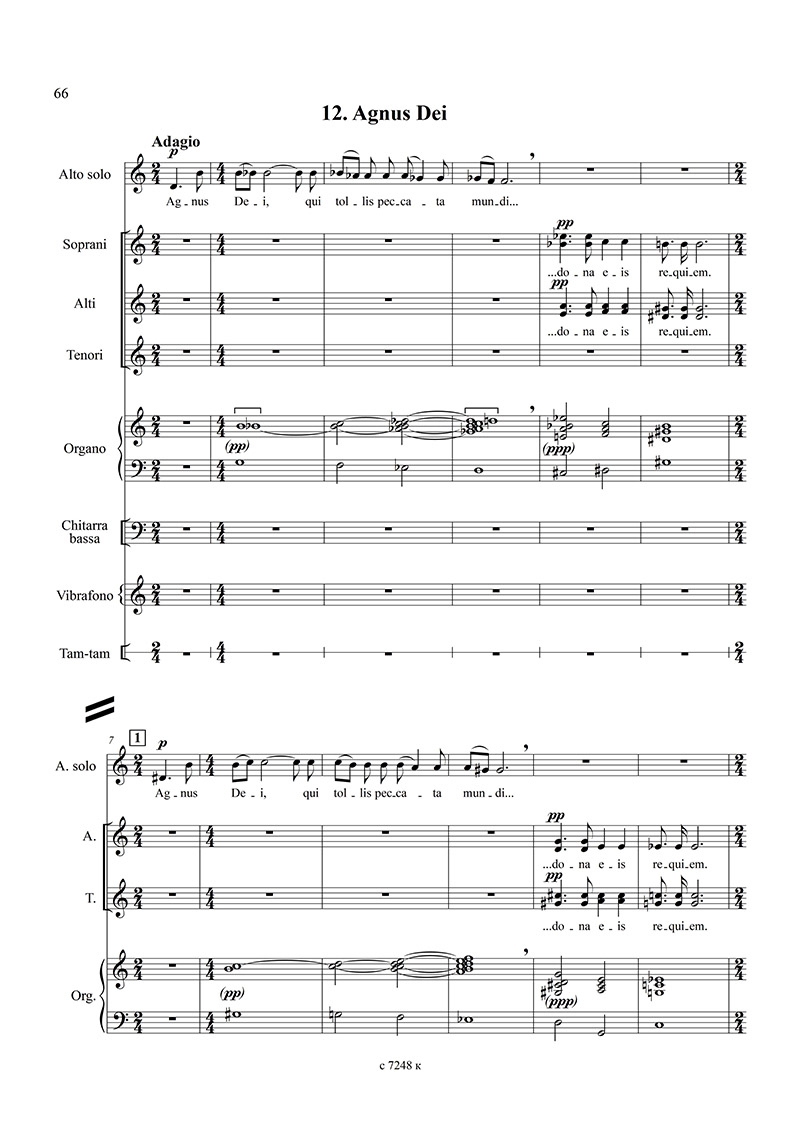
Schnittke A. Requiem from the music to Schiller's drama “Don Carlos”. Score (Coll. Works. S. 4, Vol. 3a)
- Author:
- Schnittke A.
- Author (full):
- Alfred Schnittke
- Title (full):
- Collected Works. Critical edition based on the composer's archive materials. Series 4. Works for chorus. Volume 3a. Requiem from the music to Schiller's drama “Don Carlos”. For soloists, mixed choir and instrumental ensemble. Score
- Number of pages:
- 92
Schnittke’s Requiem was one of a series of funereal works written in the 1970s following the death of the composer’s mother in 1972. His immediate response to the bereavement was to begin his Piano Quintet (completed 1976). Schnittke originally envisaged a movement in the Quintet which would include in instrumental form all the traditional parts of a Requiem. But he soon came to realize that this music was taking on a vocal character, and so two separate works emerged. Schnittke was then approached to write the incidental music for a staging of Schiller’s Don Carlos at the Mossovet Theatre in Moscow and decided this would suit a full setting of the Requiem Mass. As a result, he put work on the Piano Quintet to one side to focus on his Requiem setting. Don Carlos, with its plot of religious subterfuge in 16th-century Catholic Spain, offered a fitting context for Schnittke’s music, as well as a subtle foil against the state censorship of religious music. But Schnittke stressed that his Requiem was conceived as a concert work, and that the theatrical commission only facilitated the project.
Contents:
A page from the autograph of the Requiem
Preface
Editorial Notes
Esecutori
REQUIEM from the music to Schiller’s drama Don Carlos
1. Requiem
2. Kyrie
3. Dies irae
4. Tuba mirum
5. Rex tremendae
6. Recordare
7. Lacrimosa
8. Domine Jesu
9. Hostias
10. Sanctus
11. Benedictus
12. Agnus Dei
13. Credo
14. Requiem
Comments
- Author
- Schnittke A.
- Author (full)
- Alfred Schnittke
- Title (full)
- Collected Works. Critical edition based on the composer's archive materials. Series 4. Works for chorus. Volume 3a. Requiem from the music to Schiller's drama “Don Carlos”. For soloists, mixed choir and instrumental ensemble. Score
- Number of pages
- 92
